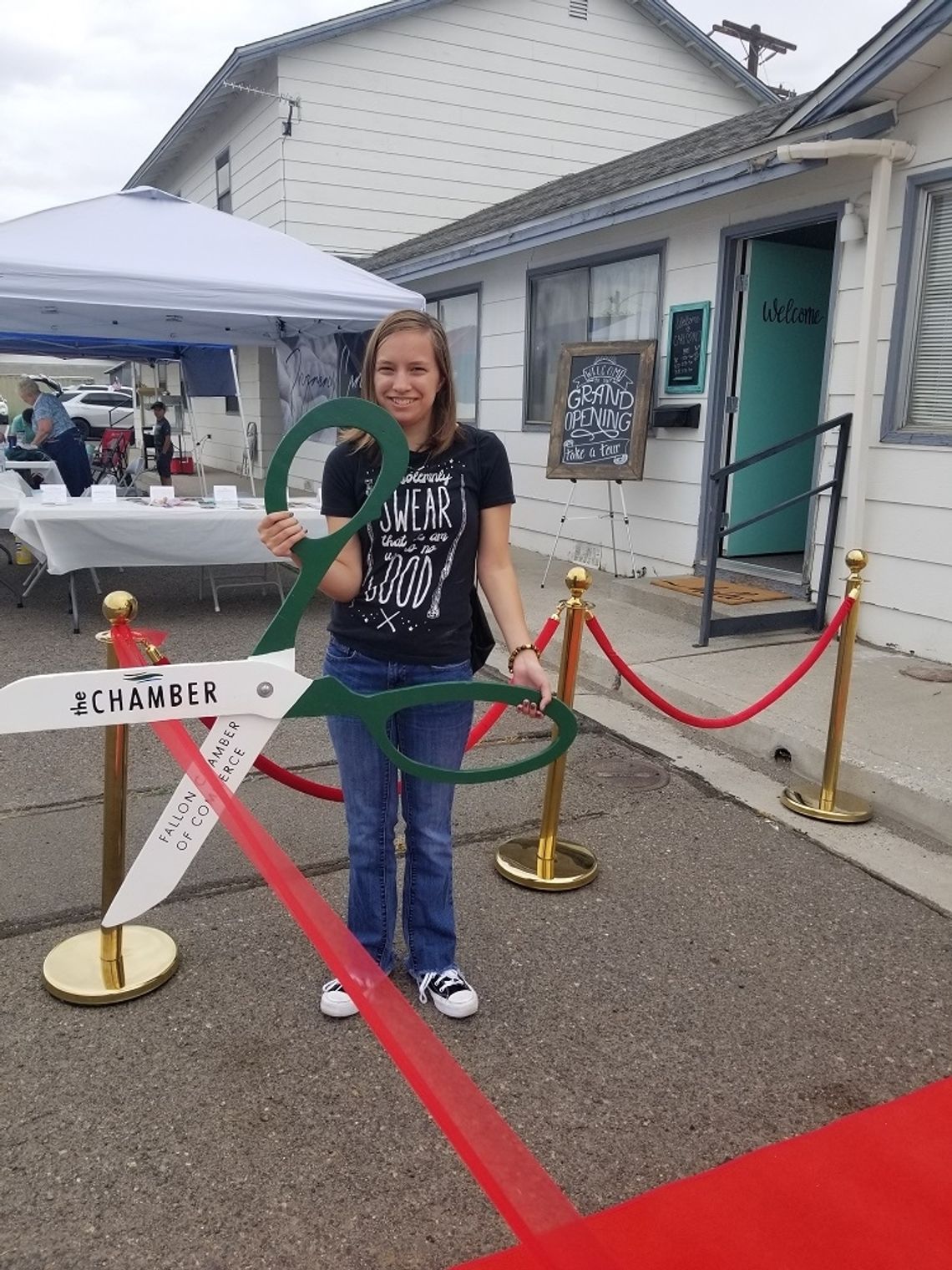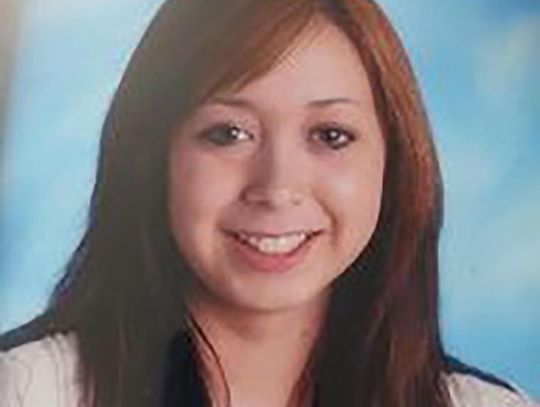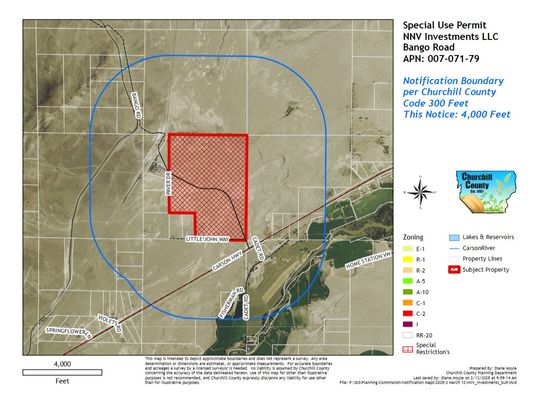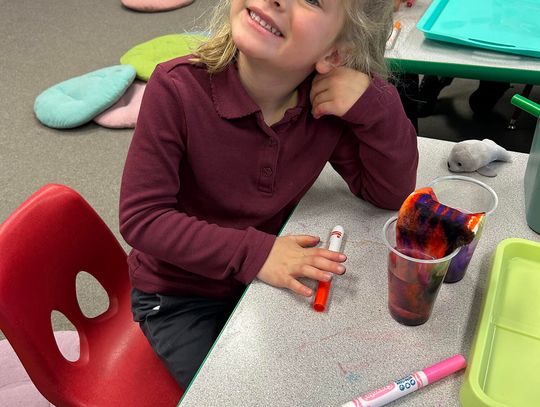Aliza Stevens could have spent her last summer as a high school student in any number of ways that didn’t include weekend Chamber of Commerce events or 6:45 a.m. CEDA Business Council breakfasts.
But several times this summer, that’s exactly where she was.
Stevens is an 18-year-old getting ready for her senior year at Churchill County High School, and has just completed her summer internship with the Chamber of Commerce through a program offered by the Nevada Vocational Rehabilitation in partnership with Manpower called the Summer Youth Internship Program (SYIP). This program provides intern placement opportunities with local non-profit businesses to public high school students between the ages of 15-18 years old.
SYIP is a component of the Department of Employment, Training and Rehabilitation’s (DETR) Bureau of Vocational Rehabilitation, which is a state and federally funded program designed to help people with disabilities become employed. Youth vocational rehabilitation services are available to high school students who have a disability that may result in a barrier to employment, not just to those students enrolled in special education classes. Examples of those barriers include things such as deficiencies in a student's reading or math skills.
The six-week program begins in July and students can work up to a maximum of 40 hours per week. The student must be a Nevada resident, eligible to work in the U.S., must register for the internship hiring process through the local Vocational Rehabilitation office, complete an orientation and sign all documents through Manpower. SYIP students receive a weekly paycheck through Manpower and in turn, get the lasting enjoyment of summer employment.
“The funding source comes through Manpower from the Vocational Rehabilitation program,” Lucy Carnahan, the Chamber's Executive Director said. “Non-profits generally don't have the funds to support an intern's wages, so they rarely get involved in an intern program. SYIP funding eliminates that obstacle.”
Stevens has done a variety of work for the Chamber and has improved her reading skills along the way. The internship was her first job, one that she has both taken much pride in and excelled in. She worked 24 hours per week in the office on Mondays, Wednesdays, and Fridays, in addition to working any weekend Chamber events. She's updated the Chamber's website, answered the phones, helped with the monthly luncheons, kept the Karma Box outside the Chamber's office stocked, attended multiple Ribbon Cutting ceremonies and two CEDA Business Council breakfasts at 6:45 a.m., and helped check-in and manage the July 4th parade entries. There were a couple of times where firmness in positioning one or two entries in the parade line was needed, and Stevens learned that skill from Carnahan too.
“Sometimes you have to be firm with people to keep them in their assigned spots,” Carnahan said. “Aliza learned how to say 'No' that day in a nice way, and how to smile with our voices.”
Along the way, Stevens has met Mayor Ken Tedford, and John and Faye Tewell, finding that she and John had a start with the Chamber in common.
“They were so easy to talk to, and John even told me I could be mayor someday,” Stevens said.
John Tewell was involved in city government years ago, so he knows how helpful a start at the Chamber could be to a person's career.
Stevens enjoyed every minute of her intern experience, all while increasing her public speaking and other office skills, and boosting her confidence levels.
“It's been a fun experience,” she said. “I liked updating the website because the information there is helpful for people.”
According to Carnahan, Stevens only has to be shown something once or twice, and she said “She can literally come into the office and do anything we can, including answering some CEDA questions. I can leave to attend a City Council meeting and not be concerned about her being at the office by herself.”
An intern extension can also be applied for, and Stevens chose to work for two more weeks at the Chamber instead of taking the time off before starting school on August 23. Her two-week extension with the Chamber was approved for 20 hours per week, making her last day of work Thursday, August 19, where she attended the Chamber's August Luncheon and was wished farewell. Since starting with the Chamber, Stevens has acquired her State ID, opened her first bank account, and makes her own deposits.
“The extra money has been great, and the experience has really been worth it,” Stevens said.
To be involved with the SYIP program, employers must register with Vocational Rehabilitation and attend the statewide supervisors' meeting, where they acquire staff contacts, learn about the program's goals, and the responsibilities of an intern's supervisor. Weekly evaluation reports are done electronically between the local Vocational Rehabilitation office and the employer, who is also responsible for reviewing and approving the intern's weekly time card before it is submitted to Manpower. Employers are also expected to attend the Internship Recognition Ceremony held at the Vocational Rehabilitation office. Stevens won't be returning to the Chamber when she graduates, even though she'd like to. Instead, she is planning to go into the Navy and is still exploring the opportunities they have to offer.
“I haven't figured out which field I'd like to go into yet, but that discussion can happen when I meet with a recruiter,” she said. “I'd like to attend college, and joining the Navy will allow me to do that.”
Carnahan admitted that she will miss Stevens.
“We've worked really well together, and we're actually very much alike,” Carnahan said. “I'll start to say something, and Aliza will say it at the same time. We like and dislike the same things, and when this stuff happens, we'll just look at each other and say 'oh my God'...”
Carnahan was disappointed that the Chamber was the only business in Fallon to participate in SYIP this year, and she said there are a number of non-profit businesses here that could benefit from the program while offering students real-life job training opportunities. Non-profits that are interested in the program can contact the Chamber or Alan Christensen at SYIP. Carnahan is a strong proponent of the program and believes more local non-profits should participate, and will gladly assist them with questions they may have as a way of increasing participation.
SYIP is a separate internship program apart from the Churchill Economic Development Authority (CEDA) internship program that is being developed as a part of its Strategic Planning process. Those internships will be available at a future date.









































Comment
Comments